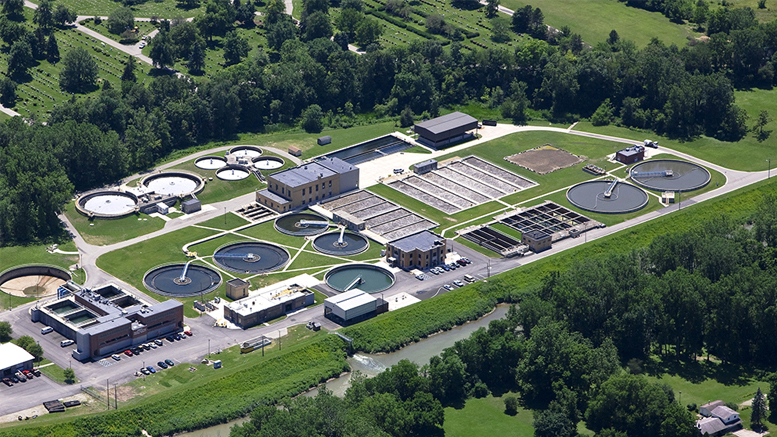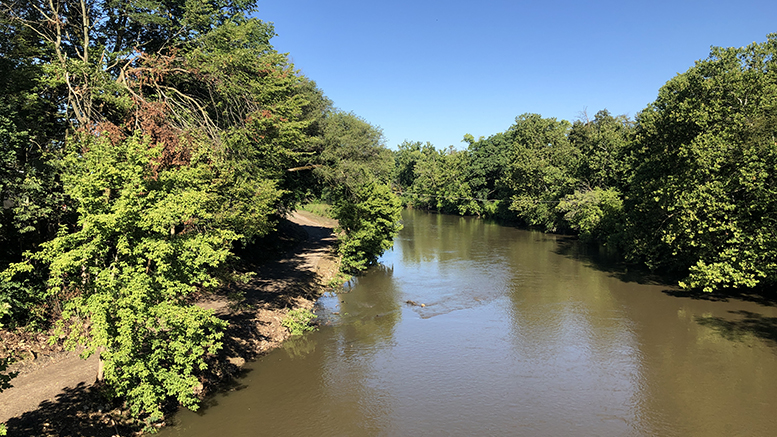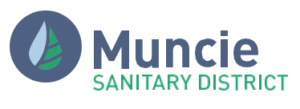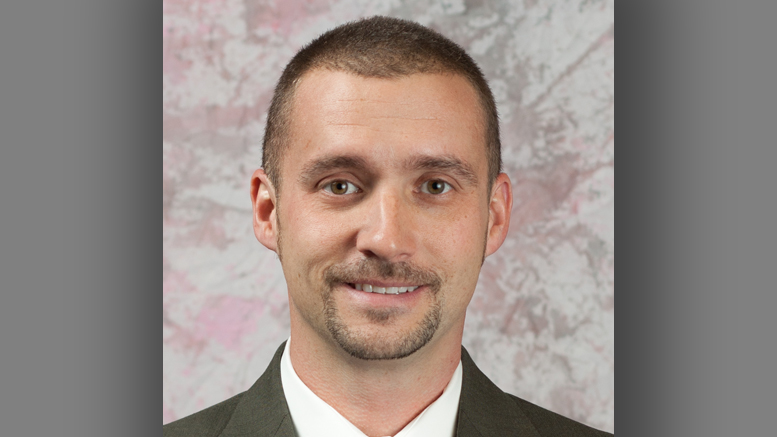By Stephen Brand—
My name is Stephen Brand. I am a lifelong resident of Delaware County. I was raised in Southern Delaware County and worked on a Family farm near Cowan. I attended Cowan Schools. My career has been in manufacturing, and I currently lead a large Advanced Manufacturing Operation here in Muncie. I also serve our community on various boards focusing on economic and workforce development. I recently accepted a seat on the Muncie Sanitary District’s Board of Commissioners as Mayor Ridenour’s appointment. Our fellow board members have nominated me to be the next Muncie Sanitary District (MSD) Board, President. I humbly and eagerly accept this position. I am doing so without compensation, as I intend to bring professional working knowledge and my integrity to the Sanitary District without any question of impropriety or motivation. I believe that Muncie is a special place, my home, your home too.
Since my appointment to the MSD board, I have met with every MSD department head and many employees. The vast majority of MSD employees live in Muncie, and most have worked for the Sanitary District for over 15 years. I want you all to know that our community should be proud of the dedication of all MSD employees. Especially now, when the virus that causes COVID is found in sewers worldwide, the value of the Sanitary District is reinforced in understanding the importance of providing safe disposal of waste and trash and protection of our water resources. Muncie Sanitary District employees are vital front-line workers.

Aerial view of the water quality plant. Photo provided
The current Board has implemented close to 80 million dollars in IDEM and Army Corps mandated projects over the last eight years. This is on top of the day-to-day operations of the sanitation district. The existing three-member Board was pleased and anxious to welcome a bigger board of directors. The current Board has invested an unquantifiable amount of time in educating the incoming board members with an understanding of what MSD is and is not responsible for as a public utility. They have shared in extreme detail the financial records.
Muncie is lucky to have benefitted and continues to benefit from the leadership of Mike Cline, Joe Evans, and Bill Smith.
I would like to take the opportunity to share with you what I have learned, in earnest. My fellow new board members and I have much more knowledge to gain. The complexities of a Sanitary District and the regulations which must be followed is a process in life-long learning by itself. I would encourage you to speak with any board member. I suspect they will share similar feelings when it comes to regulatory compliance.
One thing that I have learned that jumps out to me is that the City has a limited role in the day- to-day financial affairs and operations of the District. The Sanitary District is not a part of the City government. It is autonomous in its work activities and financial expenditures.
Statutes for this Sanitary District is a separate political subdivision but partners with the city. City Council approves a small portion of the overall Sanitary District’s budget yearly. This is a tax that is specifically for the sanitation department. The City issues checks on behalf of the Sanitary District. The Mayor and Controller are involved when the Sanitary District secures bonded funds to ensure fiscal oversight. The City and Muncie Sanitary District share certain Human Resource services. The Mayor has the authority to remove Sanitary District Board members through a public trial process reserved for extreme extraneous misconduct.
I am confident with us sharing our knowledge of the inner workings of MSD. Our community will re-instill its faith and trust in the Muncie Sanitary District. I would encourage everyone to visit the MSD website www.munciesanitary.org or follow MSD on Facebook.
The Muncie Sanitary District was created under Indiana State law by the action of an Ordinance of the City of Muncie, Indiana, adopted in 1968. The District is managed under the provisions of Indiana Code 36-9-25. It is governed by a five-person Board of Sanitary Commissioners, which acts as both the Executive Body and Fiscal Body of the Muncie Sanitary District.
The District has the power to enact Ordinances which provide the rules and procedures that the District follows in providing services to the public served by the District. The District also establishes user fees for the services it provides for the upkeep of the sanitary and storm sewers. These user fees are not tied to the tax for sanitation (trash pick-up).
Indiana Code 36-9-25 established several Sanitary Districts in Indiana. This may not be the most exciting read, but worth your time if you wish to understand the full extent of the Muncie Sanitary District. The Mayor appoints the Board of Commissioners. The Board must have a balance of both Democrats and Republicans.When the City has a City Engineer, that person occupies a seat on the Board by nature of this position. The board terms are for four years and are staggered to avoid a complete turnover in any year.
The Sanitary District is divided into Sanitation (Trash), Sewer Maintenance (upkeep of the sewers and storm pipes), Wastewater Plant (sewage treatment), Bureau of Water Quality (industrial water pre-treatment and water surveillance), Stormwater Management (rainwater and construction site compliance), Engineering (design and inventory of the entire sewer and storm collection system) and Sewage billing.
The Sanitary District operates from four different revenue streams:
- Through a tax for sanitation (trash). City Council controls this.
- A sewage discharge fee that is based on the amount of domestic water used by every address that is within the MSD service.
- A stormwater fee. This fee is levied based on how much hard or impervious pavement surface is on each and every piece of commercial property within the District boundaries. Residential fees are a set rate per property. Delaware County and Yorktown set their own.
- The processing of wastewater from surrounding wastewater districts. These districts establish their sewer rates. The Sanitary District establishes a wholesale rate with these wastewater districts to process their wastewater. The Muncie Sanitary does not provide trash pick-up, nor does it provide sewer maintenance services for these outlying wastewater districts.
The Sanitary District has about 135 proud and dedicated employees that serve approximately 24,500 customers, not including the homes within the outlying wastewater districts.
As the new MSD board president, I will be working in concert with the other board members to continue to maintain the trust of this public utility. All board members agree that the Sanitary District is here to serve its customers and leave the Community better off with each of our projects.
We will soon:
- Institute code of ethics by which all employees must follow when conducting MSD business. The code will reinforce honesty and integrity in the ranks. It is anticipated that this code of conduct will require each MSD employee to have ethics training at least twice per year. The training should take about ½ an hour per session. Each employee will be required to sign an oath acknowledging their receipt and understanding of the Code of Conduct & Ethics as a condition of employment.
- Confidentiality agreements will be required by anyone holding sensitive information. Examples are Finance, Human Resources, and IT.
- Conduct an audit of MSD policies and operational efficiencies to determine if old practices warrant reform or restructuring. This will not be a financial audit.
- Establish an advisory board as necessary to help the MSD board of director’s abilities to best serve the district customers.
- Determine if MSD should initiate customer care training for MSD employees.
The Muncie Sanitary District has many mandates that it must comply with by federal and state law. These mandates establish the Sanitary District’s moral obligation to safeguard and protect the White River and its feeding tributary streams. The White River is Muncie’s longest and most continuous economic engine. The White River is one of Muncie’s drinking water sources, place of recreation, and the center of future economic quality of place. The river is used by all races, genders, ages, religions, and income classes.

The White River and trail area as seen from the Walnut Street Bridge
MSD always has, and it will continue to be focused on the quality of place of Muncie and its service area by mission, mandate, desire, and dedication. Be it clean water, clean streets, sewage treatment, trash pick-up, or all hands-on deck in any emergency crisis as has been demonstrated many times in the past. The Muncie Sanitary District Board of Directors and its employees have and will continue to focus on making prudent value-driven business-minded decisions for its ratepayers. The Muncie Sanitary District is rarely not at the table for community economic development projects. When called upon, the District is ready to provide storm and sewer needs. The Muncie Sanitary District strives to leave anyplace that it must work in better condition when we leave.
The Sanitary District Board of Directors looks forward to serving our community—your community. We look forward to providing more information about the MSD in a series of installments. Our next installment will focus on the financial position of the Sanitary District. The Sanitary District now posts on our website all claims to be paid after approval in our bi- weekly board meeting to improve transparency. I encourage you to attend an upcoming meeting and be involved.

Stephen Brand is Muncie Sanitary District Board President



